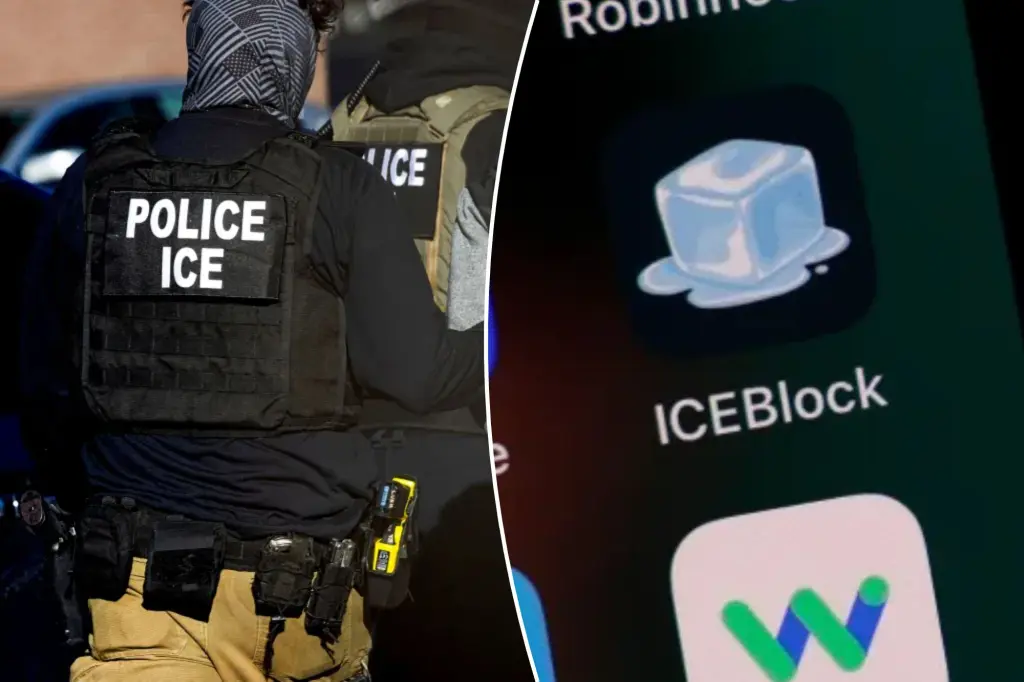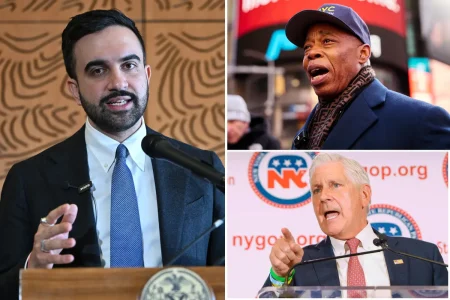Apple Removes ICE Tracking Apps Amid Safety Concerns
In a significant move that has sparked debate about the balance between public safety and community empowerment, Apple removed several immigration enforcement tracking applications from its App Store on Thursday, including the controversial ICEBlock app. The tech giant cited “safety risks” identified by law enforcement as the primary reason for the removal. This decision comes at a particularly sensitive time—just one week after a tragic sniper attack at an Immigration and Customs Enforcement (ICE) facility in Dallas that resulted in the deaths of two migrants, and amid escalating tensions and protests against federal immigration authorities across the country.
“We created the App Store to be a safe and trusted place to discover apps,” Apple stated in their official response to the situation. The company further explained that the removal was based on “information we’ve received from law enforcement about the safety risks associated with ICEBlock.” This swift action followed reports that the Department of Justice had specifically requested the removal of these applications, with Attorney General Pam Bondi confirming, “We reached out to Apple today demanding they remove the ICEBlock app from their App Store—and Apple did so.” Bondi emphasized the government’s perspective that “ICEBlock is designed to put ICE agents at risk just for doing their jobs, and violence against law enforcement is an intolerable red line that cannot be crossed.”
At the center of this controversy is ICEBlock, an application launched earlier this year that employs crowdsourcing technology to track and alert users about ICE officers’ locations in real-time. The app’s creators described it as being “modeled after Waze but for ICE sightings,” with the explicit purpose of empowering communities by keeping them informed about ICE presence within a five-mile radius. One of its key features was maintaining user anonymity while providing real-time updates, with automatic deletion of reported sightings after four hours to protect those sharing information. With a motto of “See something, tap something,” ICEBlock positioned itself as a community protection tool, particularly for immigrant communities concerned about potential enforcement actions.
The removal has highlighted the tension between government agencies seeking to protect their officers and immigrant advocates who argue such tools provide necessary protection for vulnerable communities. Joshua Aaron, the creator of ICEBlock, expressed being “incredibly disappointed” by Apple’s decision, characterizing it as “capitulating to an authoritarian regime.” Aaron vehemently denied the assertion that the app was designed to harm law enforcement officers, calling such claims “patently false.” His response reflected the frustration felt by many immigrant rights advocates who view such applications as defensive rather than offensive tools—designed to help communities prepare for and respond to immigration enforcement actions that can separate families and disrupt lives, rather than to facilitate violence against officers.
The timing of this removal is particularly notable given the current political climate surrounding immigration enforcement. The recent sniper attack in Dallas has heightened concerns about the safety of immigration officials, while simultaneously, protests against what many see as increasingly aggressive immigration policies continue across the nation. This context creates a complex backdrop for decisions about technologies that interact with law enforcement activities. The Department of Justice, under the current administration, has taken a firm stance on protecting federal law enforcement officers, with Bondi affirming their commitment to “continue making every effort to protect our brave federal law enforcement officers, who risk their lives every day to keep Americans safe.”
As this situation unfolds, fundamental questions arise about the role of technology companies in mediating between government security concerns and civil liberties. Apple’s decision to remove these apps demonstrates the significant power tech platforms have in determining which tools are available to the public. Aaron’s declaration that “We are determined to fight this with everything we have” suggests this controversy is far from resolved. The debate touches on essential questions about government transparency, community self-protection, officer safety, and the proper limits of surveillance—both by the government and of the government. As technology continues to evolve, society will need to grapple with these challenging questions about how to balance security concerns with the rights of communities to protect themselves and share information about government activities that directly affect their lives.









